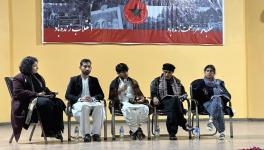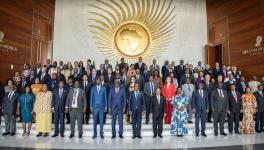Battered Economy Takes Center Stage as Kenya Votes
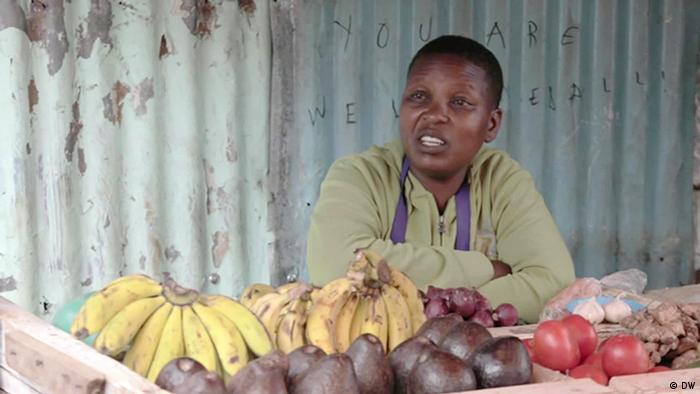
Josephine Oguta, a kiosk owner in Nairobi, says the cost of living has nearly doubled
Josephine Oguta is preparing traditional greens for one of her customers inside her kiosk in Kibera slum, Kenya's largest informal settlement. She says the cost of basic commodities has doubled, even tripled. But the price of Kenya's staple food, maize, is worrying her the most.
"You can take tea without sugar and still survive, you can make greens without cooking oil, but there is no substitute for Ugali," Oguta said, referring to Kenya's popular maize meal.
"The cost of maize flour has risen drastically. That's hurting everyone the most," Oguta told DW. She said fewer people have been coming to buy from her and admitted that, like many others, harsh economic times had forced her to forego some meals.
"You are supposed to eat three meals a day. But people can't afford to. The cost of living is simply too high. So you're forced to skip one meal to have the other."
X.N. Iraki, an economist and associate professor at the University of Nairobi, said several factors have contributed to the rise.
"Supply constraints, underinvestment in agriculture, the war in Ukraine, they have all participated in making inflation go up," Iraki told DW.
With the inflation rate currently at 8.3%, he noted that it's ordinary Kenyans who are suffering the most.
"They cannot get enough food. They cannot travel where they want, they cannot pay fees, so the people affected by inflation are mostly the people in the lower echelons of the society."
The World Bank reports that while Kenya's economic prognosis is largely optimistic, there is a high level of uncertainty because of its exposure to fuel, wheat and fertilizer imports.
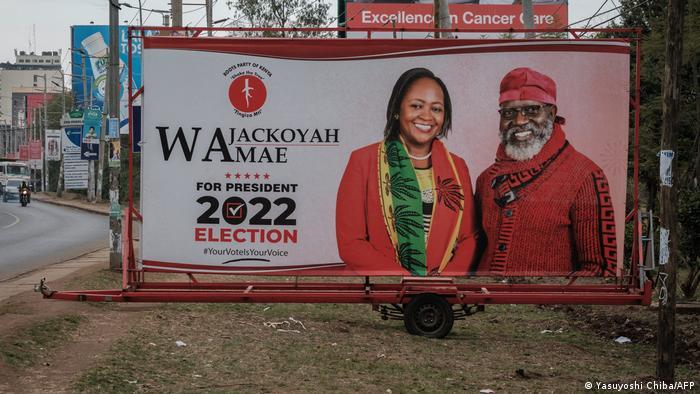
Presidential contender George Wajackoyah (right) wants to legalize cannabis for export
How Kenya's presidential candidates hope to fix the economy
The four presidential contenders in Kenya's election have offered different approaches to improving the living standards of the 56 million Kenyans.
Opposition leader Raila Odinga — running for the fifth time — has pledged to support poor households with a monthly 6,000Ksh ($50, €49) if elected.
The 77-year old also vowed to deliver double-digit economic growth.
For his part, Vice President William Ruto — Odinga's main rival — has promised to bring down the cost of living standards in his first 100 days, should Kenyans vote him as the country's next leader.
Ruto said he would prioritize agricultural spending to boost domestic food production and wean the nation off costly food imports.
But it's the economic recovery plan of presidential candidate George Wajackoyah that has caused a stir in the East African nation. Wajackoyah has suggested legalizing cannabis cultivation for export, claiming it would generate enough revenues to pay off Kenya's ballooning debt.
Meanwhile, David Mwaure Waihiga, a presidential candidate for the Agano party, said he would lower the pay as you earn (PAYE) tax by half should he become president. According to Waihiga, Kenya has lost 240 trillion Kshs since independence due to corruption.
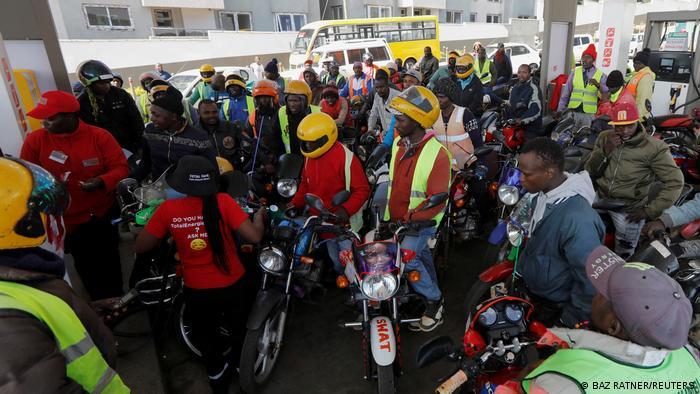
More than 80% of Kenyans, such as these motorbike taxi riders, work in the informal sector
Little relief from the minimum wage increase
In May, President Uhuru Kenyatta raised the minimum wage to 12%. However, the great majority of Kenya's 17 million working people won't immediately profit from the most recent pay increase, despite the country having some of the highest minimum earnings in the East African region.
That is because only those who work in the formal sector, which accounts for 17% of workers, are covered by minimum wage legislation.
Over 80% of Kenyans, like Josephine Oguta, work in the informal sector. Those with formal employment have been forced to tap into their savings to meet their daily needs.
Oguta is pessimistic about the promises by the presidential candidates to improve her living standards.
"Those are empty promises. They [politicians] are just looking to be elected, and when they get to the office, they will not change anything," Oguta said, adding that as soon as they are elected, they forget the plight of ordinary Kenyans.
Other African countries not spared the economic crisis
The economic predicament is not limited to Kenya; food prices across the continent have skyrocketed due to inflation. For example, in July, the annual inflation rate hit 256% in Zimbabwe.
Elsewhere, Ghana's economic data is not rosy. Growth has slowed this year while inflation broke two-decade highs at nearly 30% in June, driven by transport and food costs.
President Nana Akufo-Addo, who once promised to move "Ghana Beyond Aid," is facing criticism for his economic management as Ghana struggles with the high cost of living.
His government recently turned to the International Monetary Fund to inject much-needed cash into the country.
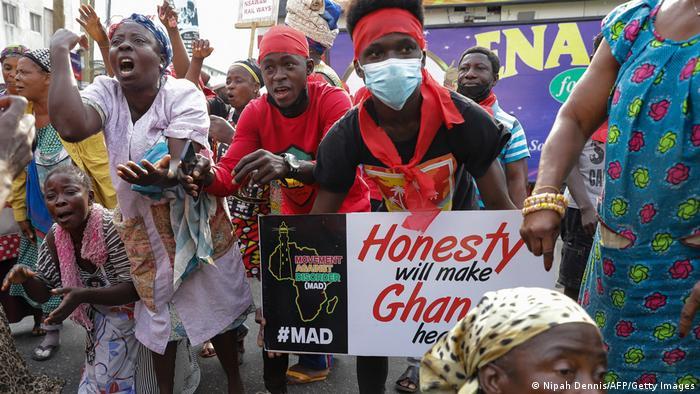
Ghanaians have occasionally protested about the nation's deteriorating living standards
Privilege Musvanhiri (Zimbabwe) and Isaac Kaledzi (Ghana) contributed to this article.
Edited by: Rob Mudge
Get the latest reports & analysis with people's perspective on Protests, movements & deep analytical videos, discussions of the current affairs in your Telegram app. Subscribe to NewsClick's Telegram channel & get Real-Time updates on stories, as they get published on our website.









